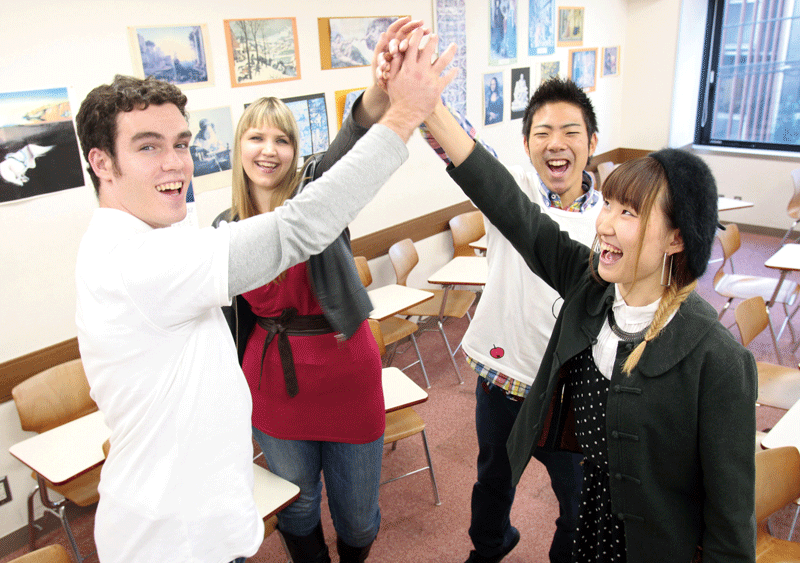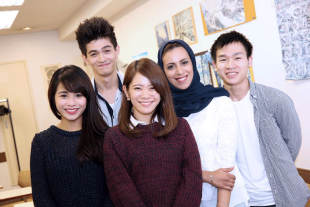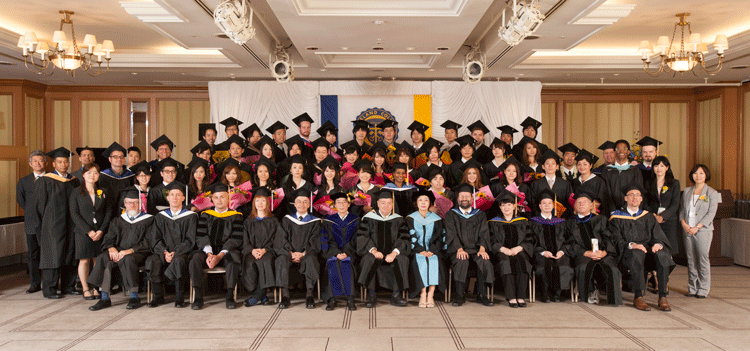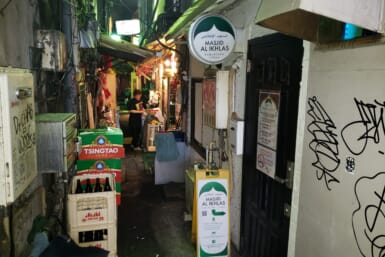A diverse population and a curriculum that challenges its students to truly engage with ideas makes Lakeland College Japan an intriguing draw.
The liberal arts college is a unique institution. It’s an environment that offers small class sizes and a freer focus on intellectual investigation than large universities or technical colleges. They are places where students feel free to explore new, creative ideas, and investigate concepts out of pure curiosity.
These kinds of schools are relatively common in the U.S., but they are a rare find overseas. That’s what makes stepping into the lively, freewheeling environment of Lakeland College Japan, located on a somewhat quiet street in Shinjuku, feel both unusual and comforting at the same time. LCJ is a two-year college where students can complete a broad range of coursework that is equivalent to the first half of a traditional four-year college or university. Students graduate with an Associate’s Degree, and can then transfer to the main campus in Wisconsin or to other schools.
The “intermediate” status of the school might make someone think “university light,” but one glance at the students’ final exam for one of the Humanities classes dispels that idea. A closed-book, long-form essay question asks them to analyze the ideas of Classical or Renaissance philosophers, and apply them to their own lives, as well as to themes previously covered throughout the 15-week semester. Other classes cover mathematics, art, or the sciences. But along with the classes that fulfill general requirements can also be found courses in Music, or those that offer an introduction to IPOs. As Assistant Professor of Humanities Iskra Gencheva explains, “Here at Lakeland College, we have disciplines that are just disappearing from higher education—some of the subjects that we have are simply not taught at larger universities.”
With this considerable breadth also comes an impressive rigor, explains LCJ Associate Dean Alan Brender. “Students work hard because we set tough, but achievable goals; if you set the standards high, students will try their best to reach them.”
Another surprise to find on stepping into LCJ’s multi-story campus, which is in the process of being expanded for the coming term, is its diversity. More than 40% of the students come from overseas, representing more than 35 different countries spread over five different continents. Other students are Japanese, expat children who have graduated from local international schools, or U.S. students who are attending college through the G.I. Bill. This globalism and richness of opinions brings another dimension to class discussions, and coupled with the small class sizes that is one of the hallmarks of a liberal arts environment, students often find themselves in conversations where global perspectives aren’t something abstract to consider, but right in front of their faces.
Students at LCJ find that this freedom to explore and create goes beyond the walls of the classroom as well. In addition to the school’s various clubs and extracurricular activities, some projects create opportunities for students to learn as they build connections outside the campus itself. One such project, led by Dr. Gencheva and her students, was a volunteer effort to improve the English language material at some of Tokyo’s smaller museums. This led to a collaboration with the Hansen’s Disease (also known as leprosy) Museum in Kyosei, which in turn led to an assignment for a new English brochure for a similar museum in Gunma. The project was published by the Ministry of Labor, Health, and Welfare, with the students’ names included.
In addition to the degree program, LCJ also offers two other programs that connect the school to the Japanese and international community. One is the Open College program, a series of 10-week courses that meet on evenings and Saturdays and cover everything from flower arranging to Japanese-English translation. The other is an intensive English language program, which offers 25 hours per week of instruction for students whose language skills are not yet ready for the rigors of academic English. The Lakeland Lectures are an established part of LCJ’s community outreach that bring in speakers from around the world. The lectures, which are free of charge, take on a variety of different subjects, including modern architecture, sexual relations in Japan, and astronomy.
Recent graduate Seong Joon An, who is working towards his degree in Criminal Justice while employed at LCJ, summed it up as follows: “It’s a very accepting environment, but one that pushes you to do your best. Wherever they might come from, students are ready for the rest of the world when they’re finished here.”
For more information about Lakeland College Japan, visit lcj.lakeland.edu.
Sponsored Post











